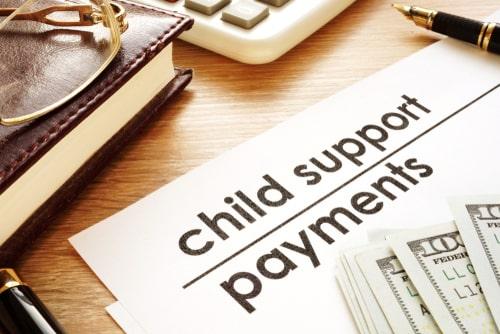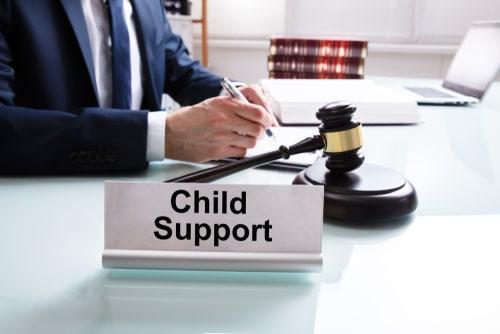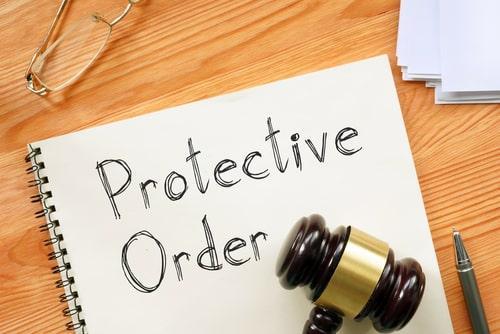Recent Blog Posts
My Ex Stopped Paying Child Support. Is There Anything I Can Do?
 When parents are going through a divorce, one of the many issues that need to be worked out in the divorce settlement is child support. Married parents are free to manage their family finances in private. Once they get divorced, however, the court has the authority to mandate which parent needs to pay what amount and when.
When parents are going through a divorce, one of the many issues that need to be worked out in the divorce settlement is child support. Married parents are free to manage their family finances in private. Once they get divorced, however, the court has the authority to mandate which parent needs to pay what amount and when.
When there is a plan in place for child support payments, both parents can arrange their finances around this. They know how much money they can expect to pay or receive from the other and how regularly. If one parent decides to simply stop paying, it can leave the other parent scrambling to cover costs related to their child. If you are a divorced parent and your ex has stopped making their child support payments, you should speak with a Kane County, IL divorce lawyer to figure out how best to proceed.
How Can I Get My Ex to Pay Child Support Again?
If your ex has stopped making their child support payments, it can put you in a stressful and uncomfortable situation. You expect to receive that money, and that is how you planned to finance what your child needed that month. While you may find yourself under financial pressure and you may feel frustrated or angry toward your ex, keep in mind that there are ways to resolve this.
As a Father in Illinois, Could My Parental Rights Be in Danger?
 People used to assume that when a couple got divorced, most parental responsibilities would be granted to the mother. While the law varies by state, that is no longer the assumption. Today, these arrangements are based on many factors. If you are a father who is concerned that your spouse could get all or most parental responsibilities in a divorce settlement, an experienced Kane County, IL divorce lawyer can explain the process to you.
People used to assume that when a couple got divorced, most parental responsibilities would be granted to the mother. While the law varies by state, that is no longer the assumption. Today, these arrangements are based on many factors. If you are a father who is concerned that your spouse could get all or most parental responsibilities in a divorce settlement, an experienced Kane County, IL divorce lawyer can explain the process to you.
Parental Distribution of Responsibilities Has Changed over Time
Not so long ago, American society held some generally accepted views on gender roles in parenting. Fathers were expected to be the main breadwinners, going off to work all day to earn the money that the family needed. They were not generally as involved as their wives in raising their children, because they were busy making a living. It was also assumed that mothers would handle the child-rearing and household responsibilities. They were not expected to contribute to the family budget because they were busy dealing with the family’s non-financial needs.
I Am Thinking About Divorce but Want to Send My Child to College
 Often, when we think about parents going through a divorce, we imagine the couple trying to figure out how they will split custody, who will take the children to soccer practice or ballet class, and where the children will spend their holidays.
Often, when we think about parents going through a divorce, we imagine the couple trying to figure out how they will split custody, who will take the children to soccer practice or ballet class, and where the children will spend their holidays.
However, parents can decide to get a divorce at any stage in their life, and this can happen when a family has older children as well. A question that often comes up in Illinois divorce is how the child’s college education will be paid for if the parents are no longer acting as a unit. College expenses are constantly on the rise, which is why this can be a very important issue to work out during divorce proceedings. An experienced Kane County, IL divorce lawyer can help guide you through the process.
My Spouse and I Cannot Agree on Anything. How Will We Work Together to Pay For Our Child’s Degree?
Child support used to be a payment that divorced parents took into consideration until their children turned 18 years old. Nowadays, that is not always the case. Illinois judges have been increasingly requiring divorcing parents to form a plan for financing their children’s college education if they have the financial ability to do so.
I Just Got Laid Off. Can I Stop Paying Child Support?
 One thing that is certain in life is that nothing is certain. You can plan something based on how your life is now, and in five or ten years from now, you might find that your life is completely different. When you got married, you probably did not picture yourself one day getting a divorce. When you were in the middle of settling your divorce, you probably could not imagine how your life would look today.
One thing that is certain in life is that nothing is certain. You can plan something based on how your life is now, and in five or ten years from now, you might find that your life is completely different. When you got married, you probably did not picture yourself one day getting a divorce. When you were in the middle of settling your divorce, you probably could not imagine how your life would look today.
Your child support agreement was most likely made based on your income back then. This agreement may no longer suit you if you have recently been laid off from work. Fortunately, your monthly payments could be modified under certain circumstances like loss of a job. If you have lost your job and have questions about your child support payments, a Kane County, IL child support attorney may be able to clear up a lot of confusion.
Does the State of Illinois Allow Modifications to Child Support Payments?
According to Illinois State Law, modifications can be made to child support payments. The law lists certain circumstances under which the child support arrangement can be changed. One of the circumstances is if either parent’s income goes through some unexpected change, for example, if they have lost their job or gotten demoted.
Should Stay-At-Home-Parents Be Nervous about Divorce in Illinois?
 When a married couple has children, they might find it difficult to juggle their work schedules and their household obligations. It can be tricky figuring out how to drop your children off at school, pick them up in the afternoon, and manage to get all your work done in between.
When a married couple has children, they might find it difficult to juggle their work schedules and their household obligations. It can be tricky figuring out how to drop your children off at school, pick them up in the afternoon, and manage to get all your work done in between.
Some spouses might decide that one of them will take on more of the family’s financial responsibilities, while the other will handle more of the family’s other needs. This means that one parent can commit themselves to working hard and moving up in their career, or getting professional or educational training, while the other parent will become a “stay-at-home” parent, making sure the household keeps running. When it comes to getting a divorce, this can create some trouble, but an Illinois family law attorney can help.
Why Would Someone Choose to Be a Stay-At-Home Parent?
When one person is in charge of the drop-offs, pick-ups, cooking, cleaning, laundry, grocery shopping, making sure kids get to all their appointments and after-school activities, and countless other household tasks, it can be so time-consuming that they simply cannot hold down a typical job. On the other hand, when all of those important tasks are taken care of by someone else, it is much easier for the working parent to focus on their job.
Modifying Child Custody in Illinois When a Parent Wants to Move
 Under Illinois divorce and family law statutes, when one parent seeks court approval to relocate a substantial distance away with a child after the divorce, the current custody order may need to be modified if the potential long-distance move could negatively impact your child’s interests.
Under Illinois divorce and family law statutes, when one parent seeks court approval to relocate a substantial distance away with a child after the divorce, the current custody order may need to be modified if the potential long-distance move could negatively impact your child’s interests.
Strict Formal Notification Requirements Apply
Illinois Compiled Statutes require the parent desiring to relocate provide formal advance written notice to the other parent of the intent to move with the child. This notice must be given at least 60 days prior to the anticipated relocation date. Serving advance notice gives the non-relocating parent time to file an objection and initiate child custody modification proceedings before the relocation occurs.
The Court Assesses Factors Related to the Child’s Best Interests
If the non-relocating parent formally objects to the proposed out-of-state move and files a petition to prevent it, the Illinois family law judge will carefully examine and weigh a variety of statutory factors to determine whether uprooting the child to a new distant location is truly in the overall best interests of the child. Factors examined include the likelihood of impacting the child’s emotional, physical, and mental well-being, the reasons for the relocation, logistics of transportation for parenting time, the child’s opinion, and disruption to current educational programs and community ties.
Securing Fair Child Support When a Parent is Self-Employed in Illinois
 When a self-employed parent gets divorced in Illinois, determining accurate income for purposes of calculating child support can be challenging. However, state laws contain provisions to protect custodial parents and ensure child support orders are fair and representative of a self-employed parent’s true earnings.
When a self-employed parent gets divorced in Illinois, determining accurate income for purposes of calculating child support can be challenging. However, state laws contain provisions to protect custodial parents and ensure child support orders are fair and representative of a self-employed parent’s true earnings.
Courts Can Compel Tax Return Disclosure
Family law courts have the power to compel a self-employed parent to fully disclose recent years’ tax returns to paint an accurate picture of gross business income. Judges can also subpoena personal and business bank statements if questions or discrepancies arise regarding reported income and business revenues.
Watch for Hidden Income Through Business Expenses
One common tactic of self-employed parents is hiding additional income by paying for many personal expenses through their business. This may include reimbursed meals, travel, entertainment, cell phone costs, and more. Courts will often add back these types of personal expenses to the gross income calculation.
Alimony Myths - Getting the Facts Straight in Illinois
 Alimony, also known as spousal maintenance or spousal support, is often misunderstood. There are many myths and misconceptions about how alimony works in Illinois. This article will debunk some common alimony myths and provide accurate information on Illinois alimony laws.
Alimony, also known as spousal maintenance or spousal support, is often misunderstood. There are many myths and misconceptions about how alimony works in Illinois. This article will debunk some common alimony myths and provide accurate information on Illinois alimony laws.
What is Alimony in Illinois?
Alimony is a court-ordered provision for a spouse after a divorce. It requires one spouse to provide financial support to the other for a determined amount of time. In Illinois, the court considers various factors in deciding alimony. These include income levels of both spouses, future employment prospects, and the marital lifestyle. Alimony aims to help the spouse who earns less maintain a similar standard of living after divorce.
Illinois Alimony Myths Debunked
Myth: Alimony is always for life
Fact: In Illinois, alimony often has a time limit. Alimony durations depend on the length of the marriage. For marriages under 10 years, alimony generally lasts no longer than half the length of the marriage. For marriages of 20 years or more, permanent alimony may be awarded.
How Can I Get an Order of Protection in Kane County?
 Making the decision to pursue an order of protection against your abuser is a big step that takes a lot of courage. Many survivors of domestic violence make multiple attempts to leave their relationship before successfully breaking free. If you obtain a protection order, your chances of staying free from further abuse are higher. A protection order can be instrumental to escaping. A common barrier to escape people who are experiencing domestic violence face is not having a place to go should they leave. A protection order can solve this problem by forcing your abuser to leave the home and stay away from you. This means that you will be able to continue living at home, even if your house or apartment is in your spouse’s name. Having a safe place to live can give you the chance you need to plan for independence in the future. If you are married to your abuser, you may wish to obtain a protection order before filing for divorce for safety reasons. An attorney can help you establish a safety plan and pursue a protection order.
Making the decision to pursue an order of protection against your abuser is a big step that takes a lot of courage. Many survivors of domestic violence make multiple attempts to leave their relationship before successfully breaking free. If you obtain a protection order, your chances of staying free from further abuse are higher. A protection order can be instrumental to escaping. A common barrier to escape people who are experiencing domestic violence face is not having a place to go should they leave. A protection order can solve this problem by forcing your abuser to leave the home and stay away from you. This means that you will be able to continue living at home, even if your house or apartment is in your spouse’s name. Having a safe place to live can give you the chance you need to plan for independence in the future. If you are married to your abuser, you may wish to obtain a protection order before filing for divorce for safety reasons. An attorney can help you establish a safety plan and pursue a protection order.
What Factors are Considered in Illinois Alimony Determinations?
 If you have spent most of your adult life as a homemaker, then worrying about how you will provide for yourself should not be a barrier to getting divorced. If you have reached a point where you no longer feel that your marriage is working out, you should have the same freedom a working person would have to leave. Unfortunately, practical financial circumstances sometimes work to keep people - especially women - trapped in a marriage they do not want to be in anymore. Illinois courts have long since recognized both the economic value of a homemaker spouse and the difficulty of reentering the workforce after years away. These are some of the reasons that the legal concept of alimony was developed. In some cases, you may be entitled to continue receiving support payments from your spouse for a length of time after your marriage has ended. Alimony can be a very contentious issue in a divorce, so it is important to involve a lawyer early on if you believe that you will need alimony payments to support yourself after you get divorced.
If you have spent most of your adult life as a homemaker, then worrying about how you will provide for yourself should not be a barrier to getting divorced. If you have reached a point where you no longer feel that your marriage is working out, you should have the same freedom a working person would have to leave. Unfortunately, practical financial circumstances sometimes work to keep people - especially women - trapped in a marriage they do not want to be in anymore. Illinois courts have long since recognized both the economic value of a homemaker spouse and the difficulty of reentering the workforce after years away. These are some of the reasons that the legal concept of alimony was developed. In some cases, you may be entitled to continue receiving support payments from your spouse for a length of time after your marriage has ended. Alimony can be a very contentious issue in a divorce, so it is important to involve a lawyer early on if you believe that you will need alimony payments to support yourself after you get divorced.











